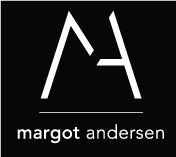“I think I can, I think I can. I know I can”
– The Little Red Engine That Could
During a recent meeting with a client we found ourselves laughing about the need for a ‘little engine that could’ mindset: ‘Yes I think can, I think I can.… I know I can’, despite the apparent obstacles that lay in the way.
Most of us will recall the much loved childhood story about the train filled with toys for children that breaks down before reaching them. After asking several trains passing by for help over the hill and being derided for doing so, a little blue engine agrees to help. Even though she is small, the blue engine digs deep within herself to find the energy and capability to bring the train carrying the toys to the children on the other side of the hill.
We’ve all faced times where we have felt like the train loaded to the hilt with expectations and responsibilities, facing an uphill journey only to find ourselves without the resources to get over the hill. It might be that you are embarking upon a major project, looking to change jobs, streamline systems or managing difficult situations.
It’s normally in these times when there is little opportunity and limited support that the obstacles seem larger than life. It’s in these times that courage is required. Courage to think about alternative solutions, take a risk and step out. Courage to simply say ‘I can’ and not, ‘I can’t’.
Tapping into your personal courage takes some grit, but when you do, you can overcome uncertainty, intimidation, apathy and doubt. It also helps you move from situations where you find yourself ‘stuck’ to a world of expanded opportunities.
Courage is crucial in our rapidly changing world. However somehow it always seems easier to recognise, encourage and applaud it in others. Stepping out and applying it in our own lives often requires a great deal of risk and vulnerability, which for some invokes sheer terror or a feeling of weakness.
When you do recognise, develop and apply the power of personal courage though the benefits can be enormous. Not only can you break down the limitations of any situation, you can realise greater job satisfaction, career advancement and experience greater confidence and personal fulfilment.
Be clear on your direction /path: In order to bravely step out and ‘get over that hill’ you need to know that it is where you want and/or need to go. Confidence in your direction will be a solid anchor that supports your decisions.
Adopt a solution-oriented mindset: Barriers will always be there whether you look for them or not. Adopting a solution-oriented mindset not only allows you to focus on where you are going but forces you to consider alternatives that often prove to be more relevant, timely and efficient.
Ask for help: No one can do it alone. Harnessing the energy and talents of others will not only lighten the load but also bring fresh new approaches, ideas and ways to overcome obstacles.
Surround yourself with ‘Can Do People’: Don’t let the ‘nay-sayers’ derail you! Collaborating with people who also bring a ‘can do attitude’ will see you achieve your desired results faster and with less stress and angst.
Focus on one step at a time: Whist it is critical to know your end destination, it is just as important to know what the incremental goal posts are and ensure that they are achieved with quality and purpose. Acknowledging and celebrating these milestones will also build momentum and drive further forward action.
Start moving: ‘Clarity comes through engagement not thought’ (Marie Forleo). Often we don’t have all the answers at the beginning of the journey but upon moving we come to understand what works and what doesn’t. Momentum builds momentum but it does require a start.
To shift thinking and find solutions in both our businesses and careers we need to embrace courage on a daily basis. It sometimes means being comfortable operating in shades of grey rather than a definitive black and white. However when we do, it provides us with the power, knowledge and strength to take a lead role in solving workplace issues and enhancing both our personal performance and organisational effectiveness.
As always I would love to hear your thoughts.

